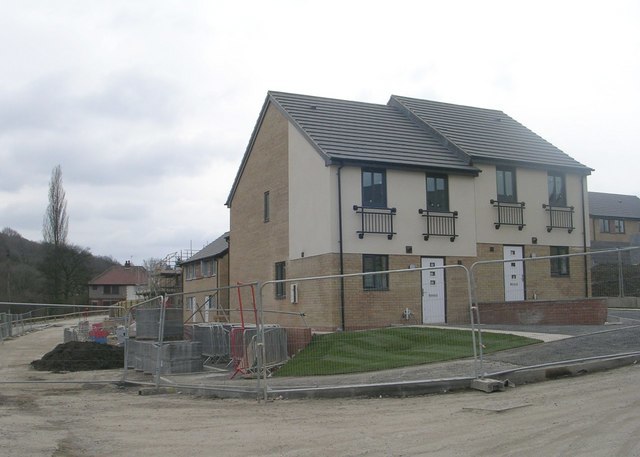The District Councils’ Network is one of 30 signatories to a letter warning the Government that its plans for an Infrastructure Levy are unworkable.
In our response to the Department for Levelling Up, Housing & Communities consultation on the levy which is supposed to increase the number of affordable houses built and amount of infrastructure supplied for new developments, we warn it is likely to have the opposite effect.
We also fear that the plans, which would see councils permitted to borrow against the anticipated future proceeds from the Infrastructure Levy, would heap financial risk on local government.
· You can read the text of the letter here.
· The full text of the 30 organisations’ joint press release can be seen below.
· DCN’s response to the Government consultation is available on request.
Cllr Barry Wood, Regeneration and Growth Spokesperson for the District Councils’ Network, said:
“District councils are committed to building more affordable homes and improving the infrastructure that underpins good housing and thriving communities. But we fear the current Infrastructure Levy proposal is likely to have the opposite effect.
“Like many other organisations working in planning and development, we believe the flaws in the proposals are so great that a fundamental rethink is required. We stand by to work constructively with the Government on achieving our shared goals.
“It is essential that any new system ensures a much greater portion of the increased land value that goes with planning permission is shared with local planning authorities and, in turn, local communities to help us build attractive places in which to live, with all the infrastructure and services new developments require to thrive.
“While we support the principle of local planning authorities being allowed to borrow against the proceeds from the Infrastructure Levy, what has been proposed would significant financial risk on councils – local service users will be the losers if a development takes longer than expected to be completed or a developer goes bust.
“It is also essential that the new system provides money for genuine essential infrastructure – the parks and green spaces, play areas, schools, cultural facilities, transport facilities and health centres required by new developments – and should not be used as a cash cow by other services. It is right that it should be the Local Planning Authority which oversees the correct use of these funds.”
Organisations’ joint press release:
Coalition of councils, housebuilders, housing associations, charities and planners call on government to scrap flagship planning reform
Councils, housebuilders, housing associations, charities and planners have called on the government to scrap a key part of its flagship planning reforms, warning its proposals could see a reduction in affordable homes delivered and less money for vital infrastructure.
A total of 30 organisations, bringing together local authorities, housebuilders, planners and social landlords have written to the Secretary of State for the Department of Levelling Up, Housing and Communities Michael Gove urging him to not proceed with the government’s proposed Infrastructure Levy, calling on him instead to reform the current developer contributions system.
The letter warns that the levy could make it ‘harder, not easier, for local leaders and communities to secure the benefits of new development’ – resulting in councils and housing providers delivering fewer homes for affordable and social rent, while less critical infrastructure could be built in tandem with development such as roads, health centres, and schools.
Despite the government anticipating that the new system will help bring about more affordable housing, the signatories argue that it is unclear how the proposed levy’s rates and thresholds will protect the delivery of affordable homes, warning that ‘we cannot support reforms that are likely to leave communities with fewer new social and affordable homes, mixed and balanced developments and less of the infrastructure they need.’
The government intends to replace the current developer contributions system, which includes S106 and the Community Infrastructure Levy (CIL), with a new Infrastructure Levy. Payments under Section 106 of the Town and Country Planning Act 1990 finance affordable housing and on-site infrastructure whereas CIL funds large-scale infrastructure. The current system currently raises around £7bn per year.
With the levy amalgamating and financing both housing and infrastructure, the letter warns the reforms could raise less money for affordable and social rent homes, whilst there would be less of a legal obligation for this tenure of housing to be included by developers. Last year, Section 106 was responsible for delivering 47% of all affordable homes built.
Councils are concerned that the levy could squeeze the amount of money made available for infrastructure to go alongside development to ease the pressure on existing services and communities.
The signatories warn that, as the government’s own supporting evidence suggests, the levy rates and thresholds would only be practicable on certain sites and would pose a serious threat to housing delivery in many areas. Whilst then model may work on greenfield sites it would make many brownfield sites unviable, perpetuating regional inequalities, creating another barrier to delivery and deepening our already acute housing crisis.
The letter also warns that the time it would take to roll it out and the complexity of the new system would create prolonged uncertainty across the planning system, and instead have called on the government to work with the sector to improve the current system of S106 and CIL payments.
The letter reads:
“Regretfully, many of the difficulties that we’ve experienced using existing Section 106 (S106) and Community Infrastructure Levy (CIL) mechanisms look likely to continue after the new system has been adopted.
It remains unclear how Infrastructure Levy rates and thresholds will sufficiently uphold the economic viability of projects, protect the delivery of affordable homes and homes for social rent and return enough money to fund the infrastructure growing communities need.
…This radical overhaul of the developer contribution system therefore presents significant operational and economic challenges that will make it difficult for existing communities to realise the benefits of new development in their area.”
Notes to editor
· The following organisations have signed the letter:
Melanie Leech CBE, Chief Executive, British Property Federation
James Francis, Chair, BuildEast
Suzannah Nichol MBE, Chief Executive, Build UK
Muniya Barua, Deputy Chief Executive, BusinessLDN
Eddie Tuttle, Director of Policy, External Affairs and Research, Chartered Institute of Building
Gavin Smart, Chief Executive Officer, Chartered Institute of Housing
Graham Watts OBE, Chief Executive, Construction Industry Council
Mark Reynolds, Co-Chair of the Construction Leadership Council
Sarah Hendry CBE, Director General, Country Land and Business Association
Cllr Roger Gough, Housing and Planning Spokesperson for the County Councils Network
Cllr Sam Chapman-Allen, Chairman of the District Councils’ Network
Cllr Matthew Hicks, Chair, East of England Local Government Association (EELGA)
Brian Berry, Chief Executive, Federation of Master Builders
Fiona Fletcher-Smith, Chair, G15
Karen Cooper, Chair, G320
Stewart Baseley, Executive Chairman, Home Builders Federation
Louise Swain, Chair, Homes for South West
Steve Coffey, Chair, Homes for the North
Shelagh Grant, Chief Executive, The Housing Forum
Paul Brocklehurst, Chairman, The Land Promoters and Developers Federation
Cllr Darren Rodwell, Executive Member for Regeneration, Housing and Planning, London Councils
Cllr Linda Taylor, Chair of Environment, Economy, Housing and Transport Board, Local Government Association
Jules Pipe CBE, Deputy Mayor, Planning, Regeneration and Skills on behalf of the Mayor of London
Richard Beresford, Chief Executive, National Federation of Builders
Kate Henderson, Chief Executive, National Housing Federation
Mike Kiely, Chair, Planning Officers Society
Victoria Hills, Chief Executive, Royal Town Planning Institute
Polly Neate CBE, Chief Executive, Shelter
Ursula Bennion, Chief Executive, Trent & Dove Housing Ltd
Fiona Howie, Chief Executive, Town and Country Planning Association





